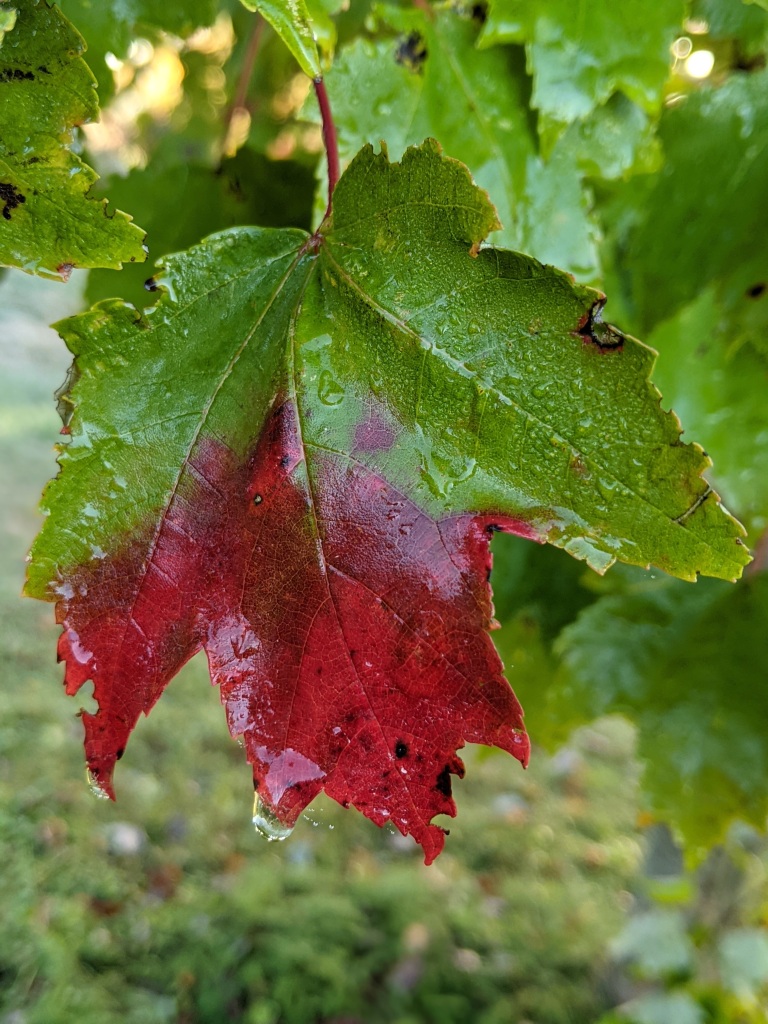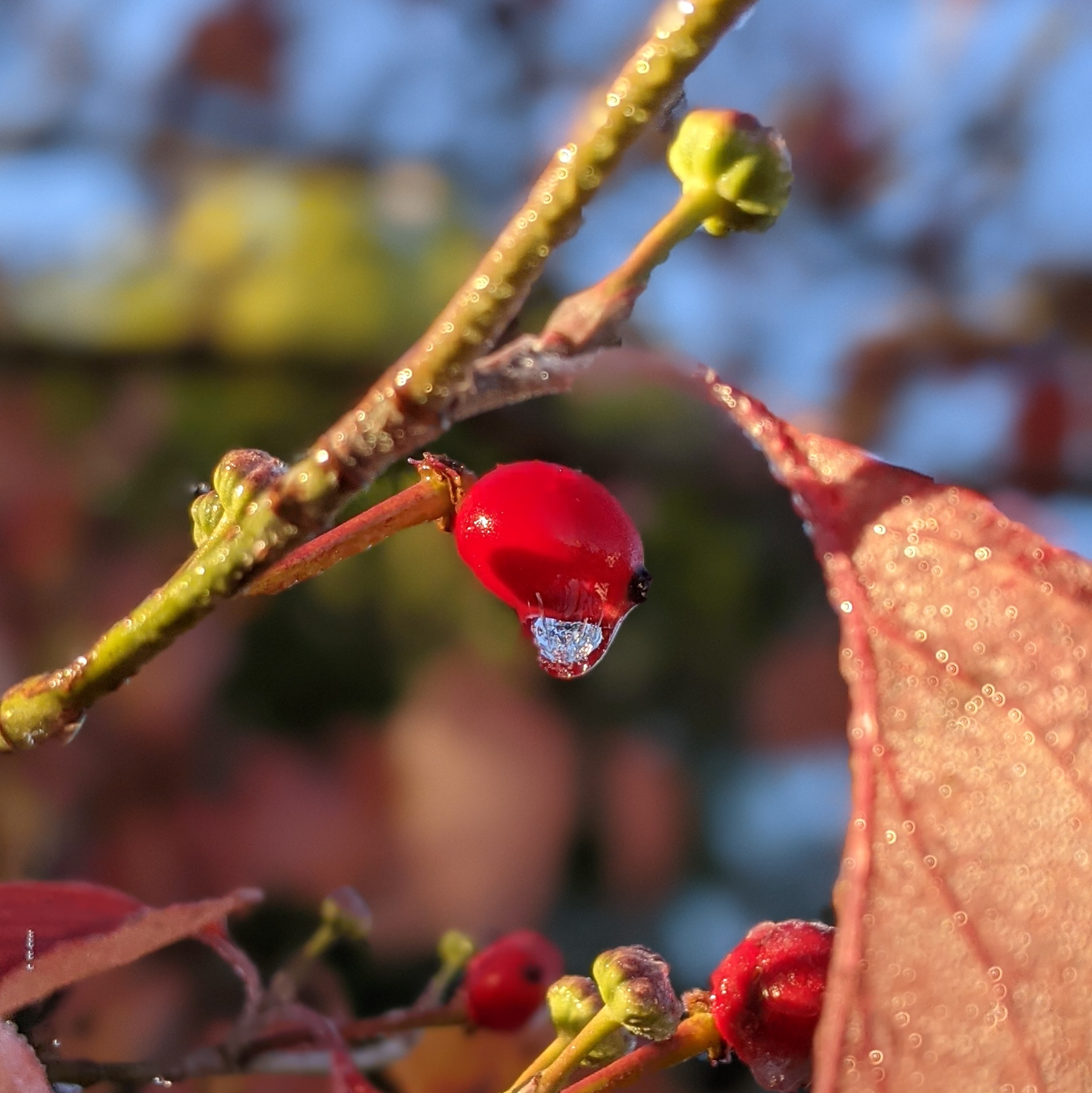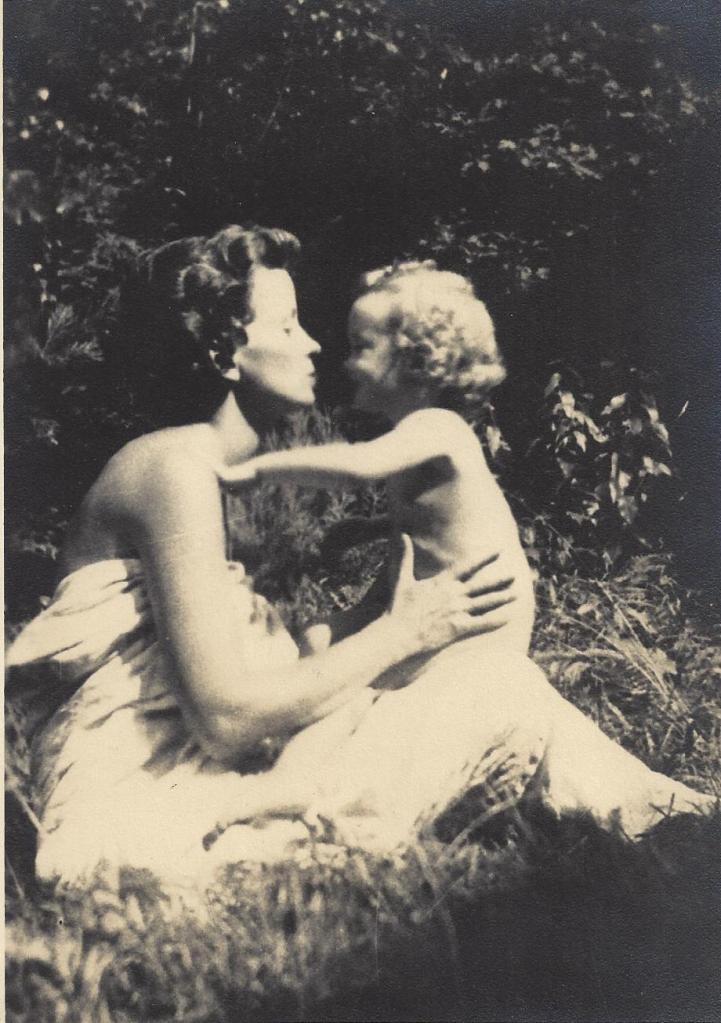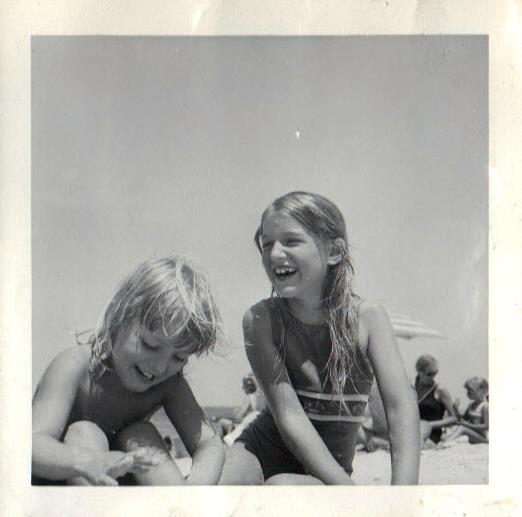
Fall mornings around here are my most magical time. It’s still dark when I wake up, so I have time to start my day slowly, but I know I don’t yet have snow and ice to contend with when I do go outside. I may wake up early and read, as I did this morning, until it gets light enough to see, and then I take the dogs out. After I feed the horses is my time for wandering, with or without my camera (well, fine, my phone), to see what this day brings.
Fall is the most evocative season for me, but it’s hard to say exactly what it evokes. I grew up in a city, in a family that did not have very many traditions and did very little holiday-related decorating. The place where I grew up did have four seasons, but not the kind of dramatic seasons that include mountainsides flaming with fall foliage. Get me near the smell of some bright yellow gingko leaves on damp concrete, though, and I am right back in my childhood.
It’s also November, which means that technically fall is half over. We are having our first week of temperatures around freezing at night, though, and I guess cold nights mean fall to me far more than the date. Fall is a good time to curl up with a book or ten. Every season was a reading season in my childhood, but there must have been a time we started coming inside in the evenings instead of running around in the alley playing kickball or freeze tag with the other kids on our block. Maybe it corresponded to the beginning of school, or maybe it was the end of daylight savings, or maybe it was the start of colder weather. At this time and place in my life, fall means fewer outside chores to do and less light in the evening, and those two things together mean more time for books.
I’m reading Fahrenheit 451 right now, I think for the first time. I read a lot of Bradbury for pleasure in junior high and high school, but I don’t think I would have found this one pleasurable then. I also think I somehow missed having Bradbury as assigned reading in any class, which would have been a good way to get me to dislike him. I know my oldest sister had his story All Summer in a Day in one of her junior high English books, but reading her assigned reading was a very different thing from reading my own assigned reading. The way Bradbury puts words together, and the pictures he paints with them – that’s the same whether it’s Dandelion Wine (forever my favorite book of his), The Martian Chronicles, or Fahrenheit. For me, reading Bradbury is a journey. I open to a page and I am right there next to his characters, seeing and smelling and tasting and feeling what they see and smell and taste and feel. Early this morning, Montag and I were running from the Hound, carried away by the river and fetching up on land somewhere out in the country, and I’ve been needing a nap ever since.

I’m not sure Dandelion Wine is technically a book for kids – it’s probably in that nebulous category of “young adult” fiction that I love: books that could just be classified as fiction but they are attractive to – but not specifically written for – teenage and advanced preteen readers. Like many of the kids’ books I love, there’s something of a seasonal arc to it – starting with the end of one school year, and ending with the first signs of fall at the end of summer. Gone Away Lake, Summer Pony, And Then There Were Five – I’m sure there are many others. There’s a natural freedom to adventure during those summer months. Children in books often get sent somewhere else so they aren’t too looked after – my mother used to say that children’s authors have to kill off the mothers long before the book starts or the kids would never get to have all the adventures. Sending them to live with an aunt or a grandfather is a slightly gentler approach.
Books like the Little House series often cover a whole year, with some of them – like Little House in the Big Woods, and Farmer Boy – celebrating the markers and rituals of each season. Maybe that’s what fall evokes for me – the rituals I lived through the written word. All the elements of butchering the pig in the Big Woods, the days getting shorter, the nights colder. The county fair in Farmer Boy, harvesting the crops, making apple cider.
I have surprising gaps in my memory of my actual childhood, but I think I remember every book I ever read. Some of them seem like I may have made them up, despite my vivid memory of the illustrations and even the format of the words on the page. I have been looking for years for something I remember as The Bunny Nutshell Library, a collection of tiny books in a box. The one I remember most clearly was about the first robin of spring, a young robin who gets so excited about being the first that he pushes the season and catches a cold. The doctor (a squirrel, maybe? or a badger?) comes to see him and says that his heart is going “boom pitty boom pitty boom boom boom” (written, incidentally, as a poem, and, I believe, in italics). I have a feeling, though I sincerely hope I’m wrong, that he prescribes chicken soup for the robin’s convalescence.
I hope I’m confusing that with Maurice Sendak’s Chicken Soup with Rice. The kind of thing I DO remember clearly from my own childhood is being very disappointed that the taste of chicken soup with rice was nothing like as magical as that book led me to expect. I remember my mother leaving me a lunch thermos on the dining room table (when even elementary school kids could walk home for lunch to an empty house, which now makes me feel like someone out of the Little House books – the previously undiscovered Little Townhouse in Washington DC) and it might contain chicken soup with rice, or it might contain a hot dog – you just never knew. In my memory, on the chicken soup with rice day, she left a note with the opening of the book (“In January/ it’s so nice/ while slipping/ on the sliding ice/ to sip hot chicken/ soup with rice”). I was in first grade at the time – my mother had just started work again after a 12 year hiatus for mothering young children – so I don’t at all trust my memory of the note, but knowing my mother, it’s likely I’m right.

One of the many things I don’t remember about my childhood is when I learned to read. I don’t remember not reading, and I don’t remember being read to. When my own kids were young, I discovered the joy of reading to them and hoped they would never outgrow wanting me to. Even books that drove me insane, like the Rosie and Tessa books my mother dredged up from somewhere because of the names. Tessa Snaps Snakes, and Rosie Sips Spiders. For me they were mainly a tutorial in the difference between American and British English, and possibly American and British ideas about what makes a good book. Our youngest, however, liked to hear them over and over – and over and over again. I was never so tempted to lose books, or to accidentally leave them out in the driving rain. It wasn’t the repetition – I never tired of Dr Seuss’ Sneetches and Other Stories. In fact, if my youngest child who is now 31 and lives more than halfway across the country were to call me right now and ask me to read that book to her, I would happily begin “Now the Star Bellied Sneetches had bellies with stars. But the Plain Bellied Sneetches had none upon thars” while I was still walking upstairs to get the book. I can’t ask my mother how she felt about Bread and Jam for Francis, a book I loved (and that my youngest loved equally) and that she must have read to me ad nauseum. I gather it made my sisters gnash their teeth the same way Rosie and Tessa made me gnash mine.
As much as I enjoyed sharing books I loved as a child with my own children, I even more loved discovering new books with them, though it did not always go smoothly. Rose and I took turns reading to the younger two at bedtime in their shared room (one of the few things that made sharing a room briefly tolerable). It was Rose’s turn to read when we were nearing the end of Sharon Creech’s wonderful Walk Two Moons, but she couldn’t keep reading because she was crying too hard. I sighed and said “Give me the book” and read for maybe two more pages before I, too, was unable to keep going. Our youngest, who was by then 8, took the book from me and finished reading it to all of us while Rose and I sat and wept.

These days as I walk in the fall mornings and look at whatever catches the light or my eye – different every day – I think about how to tackle my writing assignment for my latest class, or I try to remember all the lyrics to The Fox Went Out on a Chilly Night while dodging fox poop on the frosty grass, or I think about how complex fall is. All seasons mark the beginning of one thing and the end of another, but fall is endier than most, even though it is my favorite. The gloom that descends in the fall has been a topic in our family for many years, and for many reasons. In Ruby Holler, another splendid Sharon Creech book we first read with the kids, the characters have recipes like accept-my-apology pie and anti-cranky crumpets and nightmare-cure ice cream and waffles for breakfast. We have long talked about creating a getting-over-sad-September soup, or a forgetting-past-falls stew.
This particular fall it’s just me here, and my now-November recipe isn’t food based. It’s walking, and looking, and taking pictures, and remembering, and also reading books both old and new. And sometimes listening to my own heart going boom pitty boom pitty boom boom boom.




